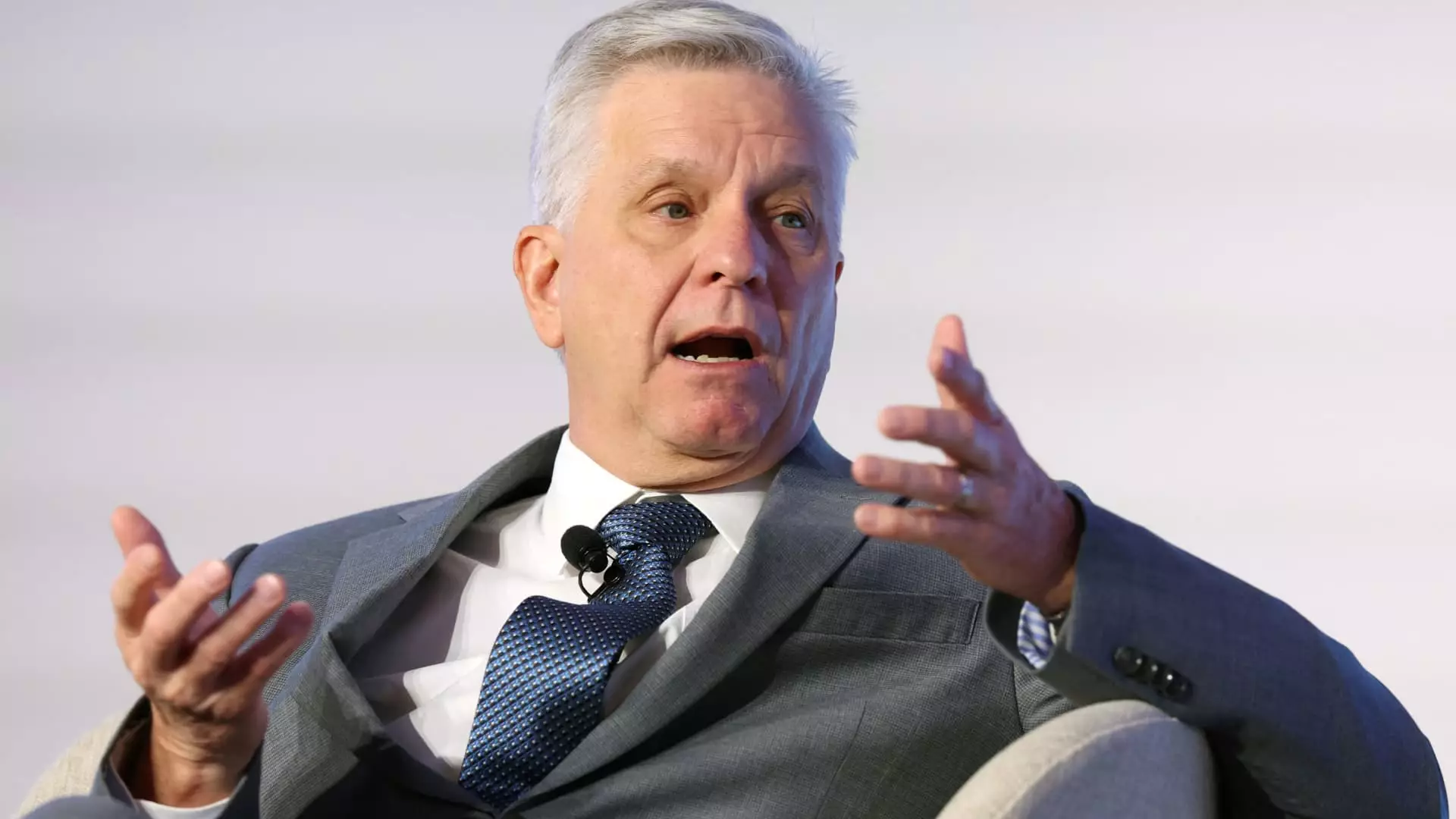The economic landscape has been fraught with uncertainty, and the Fed’s recent decisions exemplify the disarray we find ourselves in. Federal Reserve Governor Christopher Waller’s comments have ignited a critical conversation around interest rates, compelling us to question whether we are really prepared to tackle the economic hurdles ahead. Waller’s insistence on a potential rate cut as soon as next month signals a bold move that contrasts sharply with the more cautious attitudes prevailing within the Federal Open Market Committee (FOMC). Observing the economic indicators, he argues that the current inflation scenario is far from alarming and asserts that conditions are ripe for easing monetary policy. However, this approach carries significant risks that warrant a more cautious evaluation.
Despite being one of the more vocal proponents of rate cuts, Waller’s alignment with President Trump adds a layer of complexity. Trump has long championed the idea of slashing interest rates dramatically to alleviate the burden of the national debt, which currently stands at a staggering $36 trillion. The precarious intertwining of political influence and economic policy should raise red flags for those watching closely. Waller’s knack for stirring the pot could lead to unintended consequences, especially if the FOMC is not wholly onboard with his vision. In a political environment increasingly rife with populist sentiments, does he risk steering the economic ship into choppy waters?
The Impending Labor Market Crisis
Waller’s plea to initiate cuts in interest rates quickly is rooted in his apprehension about the labor market. If warning signs begin to emerge, the best strategy is not to hesitate, he argues. The message is clear: proactive measures are essential to prevent an economic meltdown. Yet, here we hit a significant debate point. The Federal Reserve has often adopted a reactive stance, waiting until the impact of decisions is crystal clear. Shouldn’t we be reevaluating our approach, particularly when it comes to safeguarding employment levels? In light of an increasingly fragile economy, Waller’s prescient words resonate more like a warning itch – we cannot afford to wait for crises to strike before we act.
Despite Waller’s optimistic forecast, the broader FOMC faction showed reluctance during their last meeting, choosing to maintain the status quo on interest rates. The skepticism within the committee may stem from lingering fears surrounding the fallout of Trump’s tariffs. As Waller himself noted, the anticipated “tariff shock” to inflation has been surprisingly subdued, yet existing officials remain hesitant to pull the trigger. One must ponder: is the Fed stuck in a feedback loop of their own making? If hesitance stems from paralyzing doubt, how will we navigate through increasingly dire macroeconomic challenges?
A Fragile Balancing Act
The economic narrative is precariously balanced between supporting borrowed money and nurturing intrinsic growth. Waller argues for a gradual approach to cutting rates, but this cautious methodology must not stifle the immediacy of economic demands. If recent history serves as any guide, the lack of urgency could embolden politicians to lambast the Fed for indecisions that inadvertently bring job losses or cascading failures in economic sectors. Perhaps it is time we redefine our understanding of what constitutes safety in fiscal governance. Do we require more radical gestures to head off brewing adversity?
Economic data may show a series of mixed signals, making it difficult for central bankers to arrive at a cohesive agreement. Once again, we’re confronted with the realities of trying to manage an economy that reflects varying sentiments from Wall Street to Main Street. If Waller’s colleagues continue to quell calls for rate reductions, we might witness a deterioration in consumer confidence, further inhibited by the stagnation of wage growth. As the profits of major corporations soar, it is incumbent upon us to challenge this glaring disparity faced by average workers. A lack of fluidity in monetary policy might aggravate the innate inequalities that persist across the nation.
The Countdown to Change
As we stand at the precipice, awaiting decisions that could reshape the economic trajectory, we must embrace the courageous perspectives that challenge the status quo. While Waller’s approval ratings among economists may not dominate the discourse, his stances force us to confront fundamental questions about the nature of intervention and leadership. We must break free from the inertia that has gripped the Fed and welcome the discourse on economic responsibility, drawing clear lines between political influence and regulatory autonomy.
Ultimately, time is of the essence. The ticking clock of impending economic challenges presses policymakers to reconsider their roles within the fabric of our society. If Waller believes that now is the time to act, ongoing indecision may very well seal our fates in the long run. Thus, it is not just about the numbers—it’s a question of fundamental values and the vision we hold for our collective economic future.

